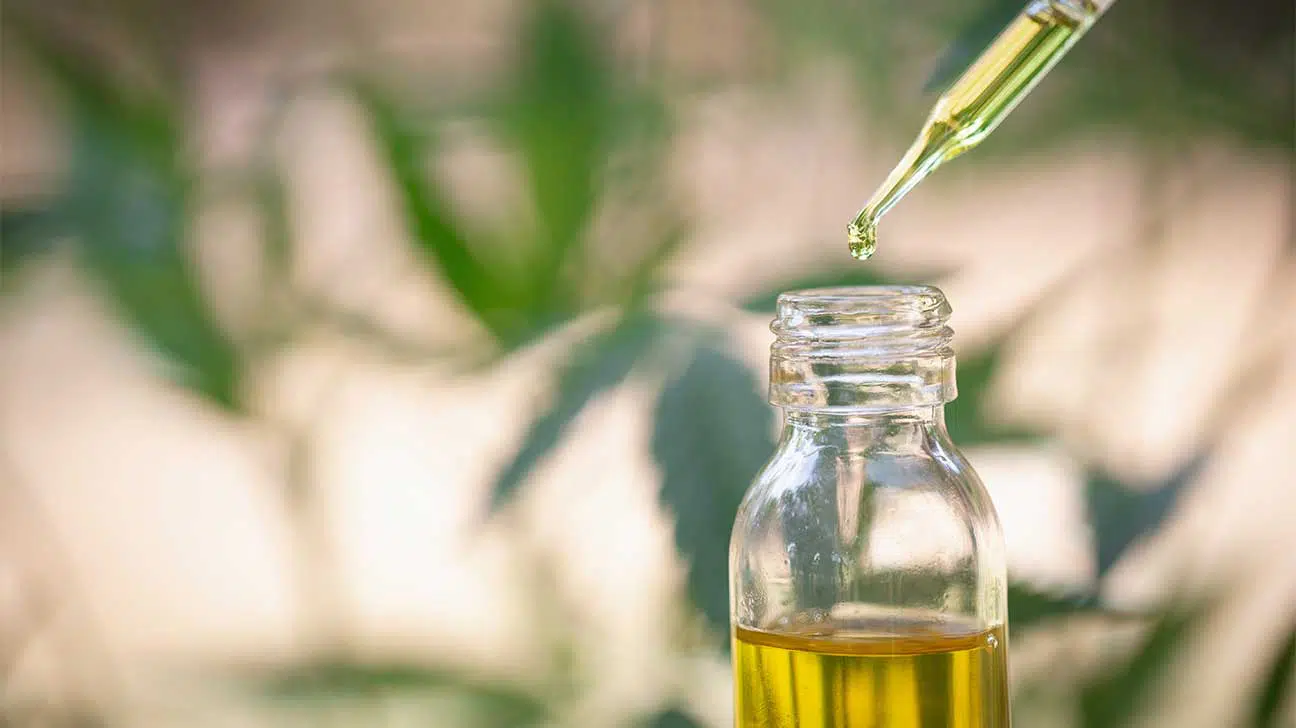
The United States opioid epidemic is a public health crisis that’s affected the lives of millions of Americans and their families.
Because of this, researchers have worked diligently to find effective treatments to help people with addiction find healing and prevent life-threatening outcomes, such as fatal opioid overdose.
As of last month, a new potential treatment has been identified: CBD. The U.S. Food & Drug Administration (FDA) approved a clinical trial in January 2022 that will study the use of a CBD-based treatment for opioid addiction.
New Clinical Trial To Explore CBD For Opioid Addiction
The FDA recently approved a clinical trial in California that will study the effects of a CBD-based medication for heroin use disorder and prescription opioid addiction.
The investigative drug, Nantheia ATL5, is an oral product containing 100 milligrams of cannabidiol (CBD). That’s according to Ananda Scientifics Inc., the pharmaceutical company that makes the drug.
Why Is CBD Being Studied For Opioid Addiction Treatment?
CBD is a chemical that, like marijuana, comes from the cannabis plant. Unlike marijuana, CBD does not contain the psychoactive ingredient, tetrahydrocannabinol (THC), which can produce a high.
At this time, CBD is not an evidence-based treatment for opioid addiction.
In 2020, the FDA warned that companies were trying to illegally sell CBD products to treat medical conditions, including opioid addiction.
But that doesn’t mean it can’t be or isn’t effective. Researchers need to study the effects of CBD for opioid addiction, as there’s little evidence for or against its effectiveness.
From there, findings of that research can inform the conclusions of researchers and addiction treatment professionals about whether CBD can be safe and effective for addiction.
What We Know About CBD And Opioid Addiction
Clinical studies have been launched to study CBD as a potential treatment for opioid addiction, with the hopes that it can help reduce opioid cravings and drug-seeking behavior.
Opioid cravings are common among people with opioid dependence. Without treatment, cravings can become overpowering, triggered by opioid withdrawal and other environmental stressors.
Clinical researcher Dr. Yasmin Hurd of the Icahn School of Medicine at Mount Sinai in New York found that CBD may help relieve anxiety and reduce cravings associated with opioid use disorder.
Risks and dangers associated with opioid use disorder include:
- breathing problems
- abnormal changes in heart rate and blood pressure
- neonatal abstinence syndrome (in babies exposed to opioids)
- drug overdose
- coma
- death
Hurd began her research into cannabinoids 20 years ago and has studied the effects of marijuana and CBD through both human and rat studies.
Is CBD Safe For Addiction?
Cannabidiol has been studied for multiple medicinal uses, including as a treatment for medical conditions like glaucoma and epilepsy.
Currently, cannabidiol is found in the seizure medication, Epidiolex, an FDA-approved drug for epilepsy and other seizure disorders.
It’s use for reducing harmful drug use and substance use disorder is still in the early research phase. But there’s evidence to suggest it may be helpful as an adjunctive treatment.
What Does CBD Do?
CBD can be found in the form of an oil, as well as an ingredient in lotions, gummies, and CBD-infused beverages in various dosages.
While its proven medicinal uses are currently limited, research shows it may help reduce anxiety symptoms in some people, because of its effects on certain receptors in the brain.
Studies show it may also help with inflammation and chronic pain management. But, while safe, it also has the potential to produce side effects.
Potential side effects of CBD products may include:
- dry mouth
- drowsiness
- lightheadedness
- low blood pressure
Current Treatment Options For Opioid Addiction
Opioid use disorder affects over two million Americans, according to estimates from the annual National Survey on Drug Use and Health (NSDUH).
While CBD is studied as a potential treatment for opioid addiction, people with an opioid addiction, or who have an affected loved one, can still access other effective treatment options.
Medication-Assisted Treatment For Opioid Addiction
Medication-assisted treatment is currently the most effective way to treat opioid addiction. This involves a combination of medication, counseling, and behavioral therapy.
Medications for opioid use disorder (MOUD) can help to reduce opioid cravings, relieve opioid withdrawal symptoms, and restore normalcy to a person’s life.
There are three FDA-approved medications for opioid use disorder currently in use:
- methadone
- buprenorphine (Subutex, Suboxone)
- naltrexone (Vivitrol)
Medication-assisted treatment programs are offered within some inpatient treatment centers, and on an outpatient basis through some individual healthcare providers and MAT clinics.
Opioid Addiction Rehab Programs
Medications like methadone and Subuxone are commonly offered as an adjunctive treatment for drug addiction, as part of a drug abuse rehab program.
That means this medication is offered alongside other behavioral healthcare treatments, such as behavioral therapy, drug counseling, and group therapy.
Opioid addiction rehab can be found through certain inpatient treatment centers, outpatient rehab centers, and individual treatment providers.
Find Opioid Addiction Treatment Today
Living with an addiction, or watching someone you care about struggle, may be painful. But know this: recovery is possible.
Don’t wait to seek help. Call our helpline today to learn more about opioid addiction treatment options, or to find an addiction treatment program at a rehab center near you.


